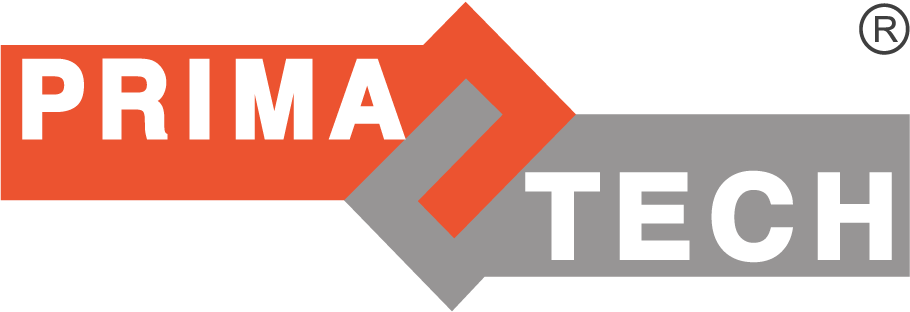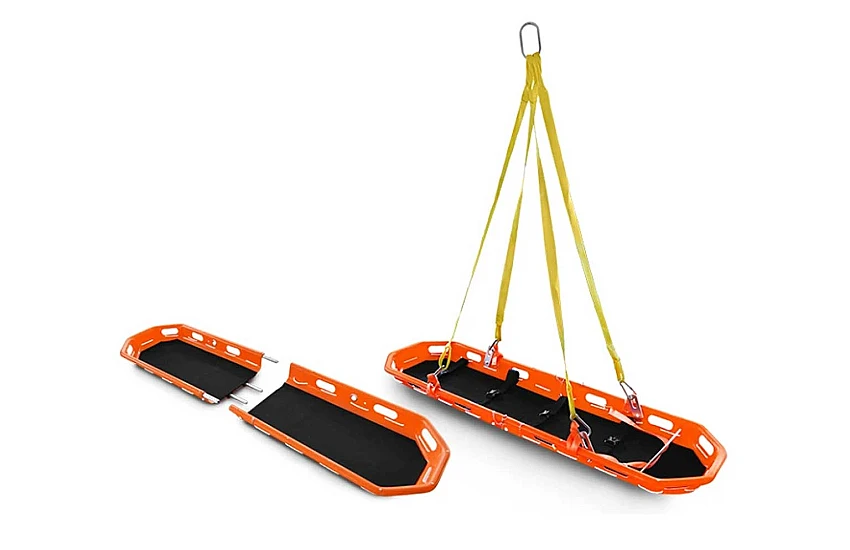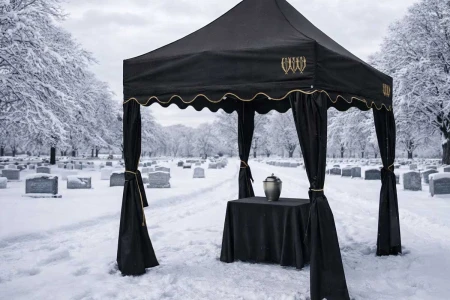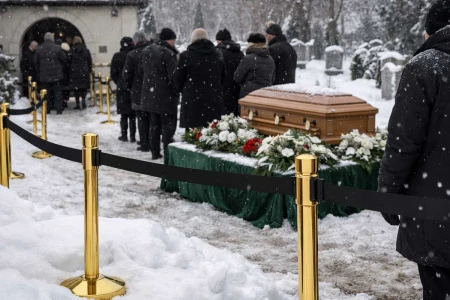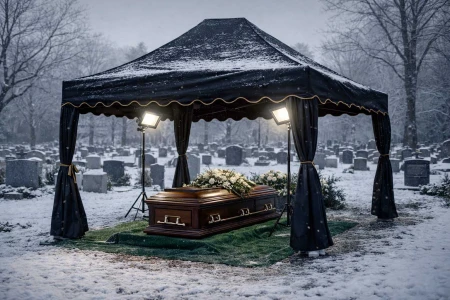Table of Contents
- Basket Stretchers - Professional Equipment for Funeral Homes: Everything You Need to Know About Deceased Transport in Challenging Conditions
- What Are Basket Stretchers and Why Are They Essential in the Funeral Industry?
- History and Evolution of Funeral Equipment
- Detailed Construction and Functionality Analysis of Basket Stretchers
- Comprehensive Applications in Various Scenarios
- Key Technical Parameters and Selection Criteria
- Economic Dimension of Investment
- Safety and Operational Procedures
- Personnel Training and Competency Development
- Technological Innovations and Industry Future
- Legal Regulations and Industry Standards
- Marketing Strategies and Building Competitive Advantage
- Long-term Operation and Equipment Management
- Total Cost of Ownership and Expense Optimization
- FAQ - Comprehensive Answers to Key Questions
- Conclusion - Strategic Investment in the Funeral Industry Future
Transporting the deceased in demanding terrain requires specialized equipment that guarantees safety, dignity, and professionalism. Basket stretchers represent essential funeral home equipment that enables efficient deceased transport where standard solutions fail. In this comprehensive guide, you'll discover everything you need to know about basket stretchers - from their construction and applications to choosing the best equipment for your funeral business.
Basket Stretchers - Professional Equipment for Funeral Homes: Everything You Need to Know About Deceased Transport in Challenging Conditions
Transporting the deceased in demanding terrain requires specialized equipment that guarantees safety, dignity, and professionalism. Basket stretchers represent essential funeral home equipment that enables efficient deceased transport where standard solutions fail. In this comprehensive guide, you'll discover everything you need to know about basket stretchers - from their construction and applications to choosing the best equipment for your funeral business.
What Are Basket Stretchers and Why Are They Essential in the Funeral Industry?
Basket stretchers, also known as scoop stretchers or funeral basket carriers, are specialized funeral equipment designed for transporting the deceased in challenging terrain conditions. Unlike standard funeral stretchers, basket stretchers feature a unique, two-piece construction resembling a basket or scoop shape, hence the name of this solution.
The funeral industry, valued at billions globally, continues to develop and professionalize. Funeral homes increasingly face the challenge of providing funeral services in hard-to-reach locations. This might be a narrow stairwell in an old building, steep mountain slope, dense forest, or underground facility. In such situations, standard funeral equipment simply doesn't work effectively.
Unique Construction Features
Mortuary transport stretchers distinguish themselves through several important construction features that make them indispensable in difficult conditions. The two-piece, foldable construction enables easy storage and transport, which will be particularly appreciated by smaller funeral establishments with limited storage space. Reinforced handles ensure not only operational ergonomics but also worker safety during extended transport operations.
The foot protection mechanism constitutes a key element stabilizing the deceased's body during transport, minimizing shifting and ensuring dignified transportation. Damage resistance results from using durable materials that withstand intensive use in harsh weather and terrain conditions. Additionally, four solid safety straps included in the set provide additional body stabilization during transport, even in the most demanding terrain conditions.

History and Evolution of Funeral Equipment
To fully understand the significance of basket stretchers, it's worth examining the development of the funeral industry over recent decades. Most funeral businesses operating today emerged during periods of industry privatization and modernization, when rapid entrepreneurship development occurred alongside a lack of standards and unified procedures.
During that period, funeral home equipment was often basic and limited by young companies' budgets. Deceased transport was carried out using simple transport stretchers that didn't always work in difficult conditions. Over time, along with technology development and rising customer expectations, the need emerged for more advanced funeral equipment that could meet modern funeral industry challenges.
Impact of Demographic Changes
Many developed countries belong to the group of fastest-aging societies globally. This demographic phenomenon directly impacts the funeral industry, meaning growing demand for funeral services and simultaneously greater challenges related to transporting elderly deceased persons, often living in hard-to-reach apartments on higher floors of buildings without elevators.
Simultaneously, we observe urbanization and city modernization phenomena, which paradoxically increases the number of hard-to-reach locations. Renovations of old buildings often result in narrowed stairwells, while modern residential buildings are designed with the living in mind, not always considering funeral service providers' needs.
Detailed Construction and Functionality Analysis of Basket Stretchers
Two-Piece Construction as the Key to Versatility
The greatest advantage of basket stretchers is their innovative foldable construction, which revolutionizes thinking about deceased transport. The two-piece system allows easy folding of equipment to compact sizes, significantly facilitating storage in limited warehouse space. Folded stretchers occupy up to 70% less space than when deployed, enabling efficient space utilization in hearses and warehouses.
Convenient storage translates to the ability to transport more stretchers in a single vehicle, increasing operational flexibility for funeral establishments. Quick assembly is another advantage - experienced workers can assemble stretchers in less than a minute, which in emergency situations may prove crucial for efficient service delivery.
Advanced Materials and Durability
Professional funeral stretchers are manufactured from highest-quality materials, selected considering the specific requirements of the funeral industry. Aluminum used in construction features not only lightness and corrosion resistance but also easy cleaning and disinfection, which has crucial significance in the context of sanitary requirements.
Stainless steel used in structural elements ensures exceptional strength and durability, allowing years of intensive use without noticeable wear. Durable plastics used in auxiliary elements feature resistance to mechanical damage and atmospheric factors. All materials are selected to be waterproof and enable easy maintenance of the highest hygiene standards.

Ergonomic Solutions for Work Comfort
Every funeral home worker knows perfectly how important ergonomics is during daily physical work. Scoop stretchers are equipped with specially designed handles that were developed based on ergonomic research and years of industry experience. These ergonomic solutions significantly reduce worker spinal load, ensure secure grip even in difficult weather conditions, and distribute weight evenly between carriers.
Minimizing occupational injury risk is not only a matter of work comfort but also an important cost management element in funeral businesses. Properly designed handles reduce muscle tension and decrease overload risk, translating to lower sick leave and higher worker satisfaction.
Comprehensive Applications in Various Scenarios
Transport from Hard-to-Reach Residential Locations
One of the most common and practical applications of basket stretchers is deceased transport from apartments in old buildings with atypical architecture. Narrow stairwells designed decades ago often make using standard funeral stretchers impossible. In such situations, the flexible construction of basket stretchers allows efficient maneuvering even in the most limited spaces.
Sharp turns on stairwells require equipment that can be easily adapted to space configuration. High thresholds and uneven steps present additional challenges that basket stretchers overcome through special stabilization mechanisms. Limited space in elevators or corridors requires foldable equipment that can be quickly adapted to current needs.
Operations in Demanding Terrain Conditions
The funeral industry increasingly must deal with challenges related to transport in difficult terrain where standard funeral equipment simply doesn't work. Mountainous and hilly terrain presents particular challenges - steep slopes require additional stabilization, while uneven surfaces complicate standard transport. Weather conditions such as snow, rain, or mud additionally complicate the situation, while limited mechanical vehicle accessibility forces manual transport.
Forest terrain constitutes another category of challenges for funeral homes. Narrow paths between trees, roots and natural obstacles, lack of hearse access, and the need for manual transport over long distances require specialized equipment adapted to such conditions. Basket stretchers were designed precisely with such situations in mind.
Specialized Evacuation Operations
Mortuary transport stretchers along with additional harnesses and carabiners enable conducting complex evacuation operations. Transport from higher building floors without functioning elevators, evacuation from places requiring rope techniques, safe movement in vertical spaces, and cooperation with rescue units are just some of the advanced applications of this equipment.
Such operations require not only appropriate equipment but also specialized personnel preparation and close cooperation with rescue services. Professional funeral companies increasingly invest in additional worker training to provide services at the highest level even in the most demanding situations.
Key Technical Parameters and Selection Criteria
Technical Specifications and Operational Requirements
When selecting funeral home equipment, special attention should be paid to key technical parameters that will determine the practicality and durability of the investment. Dimensions constitute the basic parameter - deployed length typically ranges from 75 to 79 inches, allowing comfortable transport of people of various heights. Width in the 20-24 inch range provides adequate support for the deceased's body while enabling maneuvering in narrow spaces.
Working height, adjustable in the 33-37 inch range, allows equipment adaptation to operator height and terrain specifics. Particularly important are folded dimensions, which often constitute less than 30% of working dimensions, significantly facilitating equipment transport and storage.
Load capacity is another crucial parameter - standard basket stretchers withstand loads of 350-400 pounds, while reinforced models can handle up to 550 pounds. It's important to maintain appropriate safety margin of at least 20% above expected maximum load.
Significance of Self-Weight for Ergonomics
Equipment self-weight directly impacts work comfort and safety. Aluminum models weighing 55-77 pounds offer the best combination of lightness and durability, which will be particularly appreciated by workers performing transport over longer distances. Steel models, though heavier (88-110 pounds), provide greater durability and stability, which may be important with intensive use.
The choice between lightness and durability should be dictated by the specific activities of a given funeral establishment and frequency of equipment use in difficult terrain conditions.
Certification and Quality Standards
Professional funeral equipment must meet specific safety and quality standards. CE certificates confirm compliance with European safety norms, while compliance with national workplace safety regulations guarantees legal usability under domestic conditions. Certificates for materials contacting the deceased's body ensure equipment meets sanitary-epidemiological requirements.
Technical documentation in the local language is not only a legal requirement but also a practical necessity enabling proper equipment operation and maintenance by staff. All these elements contribute to comprehensive quality assessment and suitability of funeral stretchers.

Economic Dimension of Investment
Comprehensive Profitability Analysis
Investment in basket stretchers is a decision requiring thoughtful economic analysis considering not only purchase cost but also long-term benefits. Expanding the range of offered services constitutes the first and most obvious benefit - the ability to accept orders from difficult locations that previously had to be rejected or transferred to competitors. These specialized transport services can be priced significantly higher than standard transport, quickly translating to investment return.
Competitive advantage over other funeral businesses in the region may prove crucial in the fight for clients. In an industry where reputation and technical capabilities have enormous significance, possessing specialized equipment can be the deciding factor when families choose a funeral home.
Operational Savings and Long-term Benefits
Operational savings resulting from basket stretcher investment can be significant, though not always immediately visible. Lower worker injury risk translates to lower insurance costs, less sick leave, and higher team satisfaction. Faster and more efficient transport means the ability to handle more orders per day, directly impacting company revenues.
The ability to handle difficult orders that previously required engaging subcontractors or additional personnel allows maintaining full process control and entire margins. Additionally, professional equipment builds client trust and can lead to increased referrals.
Investment Durability and Residual Value
High-quality funeral stretchers feature exceptional durability, serving without problems through many years of intensive use. Minimal maintenance costs result from using high-quality materials and thoughtful construction. Additionally, specialized funeral equipment maintains relatively high resale value, which can be important during potential equipment modernization.
Compared to alternative solutions, basket stretchers offer excellent capabilities in difficult terrain where standard stretchers are limited or completely unsuitable. Though purchase price is higher, investment return typically occurs within 12-18 months with appropriate equipment utilization.
Safety and Operational Procedures
Preparation and Control Protocols
Deceased transport using basket stretchers requires adherence to detailed safety procedures that must be implemented and consistently applied by all workers. Before each use, it's necessary to conduct thorough technical condition control of all construction elements, check operation of folding and unfolding mechanisms, and test all straps and safety devices.
Terrain condition assessment and optimal transport route planning are key elements of action preparation. Experienced operators always prepare additional equipment such as flashlights, safety ropes, communication devices, or first aid kits, adapting the set to the specifics of the particular situation.
Safe Transport Principles
During transport, maintaining constant voice contact between stretcher carriers is extremely important, allowing movement coordination and quick response to potential problems. Regular checking of deceased body stabilization and adapting transport pace to terrain conditions are basic principles that must be observed regardless of time pressure.
In difficult terrain, additional support points are used, and in particularly demanding situations, safety techniques known from climbing or mountain rescue may be necessary. Funeral homes providing services in difficult conditions often invest in additional worker training in rescue techniques.
Post-Service Procedures and Maintenance
After transport completion, thorough disinfection of all surfaces that could have contact with the deceased's body or bodily fluids is necessary. Checking the technical condition of all mechanisms, proper folding and equipment storage, and documenting any damage or irregularities are routine activities crucial for long-term operation.
Sanitary-Epidemiological Requirements
The funeral industry is subject to strict sanitary regulations that have particular significance in the context of funeral stretchers. Equipment must be made from materials resistant to disinfectants, easy to clean in all hard-to-reach places, and not causing bodily fluid retention. Color-coded marking of different stretcher sets may be used to distinguish equipment intended for various applications or categories of deceased.
Personnel Training and Competency Development
Basic Worker Preparation
Effective basket stretcher utilization requires appropriate personnel preparation that extends beyond basic standard funeral equipment operation. Basic training includes safe lifting and carrying techniques, equipment assembly and disassembly procedures, hygiene and disinfection principles, and basic medical first aid.
Practical exercises using various transport scenarios allow workers to gain necessary confidence and routine in equipment operation. Particular attention should be devoted to work ergonomics and recognizing potentially dangerous situations.
Advanced Specialized Techniques
Advanced training focuses on transport in difficult terrain conditions, cooperation with rescue units, and stabilization techniques during vertical transport. Workers learn crisis situation management, communication in stressful conditions, and basics of psychology when working with families in difficult moments.
Regular improvement courses and worker certification are investments that pay off in higher service quality, greater work safety, and better funeral home reputation in the local market.
Technological Innovations and Industry Future
Modern Materials and Constructions
Funeral equipment continuously evolves, utilizing the latest achievements in materials technology. Carbon fiber composites offer ultra-light yet exceptionally durable solutions that may revolutionize thinking about funeral stretcher construction. Antibacterial materials increase sanitary safety, while smart plastics reacting to temperature and humidity open new possibilities in equipment functionality.
Supporting systems such as GPS tracking increase transport safety, especially in hard-to-reach terrain where precise location may be crucial. Load sensors enable safe equipment use monitoring, while advanced communication systems ensure reliable connectivity during the most demanding operations.
Future Ergonomics
Vibration reduction systems, automatic stabilization systems, and pneumatic and hydraulic assistance are solutions that may become standard in professional funeral equipment in coming years. These innovations will not only improve work comfort but also increase deceased transport safety and reduce worker injury risk.
Digital Industry Transformation
Funeral services increasingly utilize modern digital technologies. Mobile applications for fleet and equipment management allow resource utilization optimization, real-time inventory management systems eliminate the problem of key equipment unavailability at critical moments. E-learning platforms enable effective personnel training, while blockchain-based quality systems guarantee process transparency and credibility.
Legal Regulations and Industry Standards
Current Legal Framework
The funeral industry operates within detailed legal regulations that regulate all aspects of funeral home activities. Funeral laws constitute the legal foundation, while sanitary-epidemiological regulations specifically define equipment and procedure requirements. Workplace safety regulations for the funeral industry and technical norms for specialized equipment complete comprehensive sector regulation.
Upcoming Legislative Changes
Draft funeral law amendments being worked on by relevant authorities envision further funeral service standardization and introduction of regulated funeral director profession. These changes will directly impact funeral home equipment requirements and personnel qualifications.
Stricter requirements regarding deceased transport may mean the need for equipment modernization and additional investments in worker training. Funeral companies that invest in modern solutions and high standards today will be better prepared for upcoming legal changes.
Liability and Insurance
Funeral home owners must remember broad legal liability related to possessing appropriate equipment, regular technical equipment inspections, and documenting personnel training. Civil liability insurance should consider equipment specifics and scope of provided services.
Marketing Strategies and Building Competitive Advantage
Communicating Professionalism
Possessing basket stretchers is a significant competitive advantage that should be skillfully communicated to potential clients. Website sections describing specialized equipment, photo galleries demonstrating professionalism, and case studies from difficult transports are worth creating. Certificates and documents confirming equipment quality build trust and emphasize professional approach to provided services.
In marketing materials, informational brochures about transport capabilities, videos presenting stretcher operation in real terrain conditions, and testimonials from satisfied clients can prove effective. Merit-based comparison with competitors can be a deciding factor when families choose a funeral home.
Search Engine Positioning
For funeral companies, proper search engine positioning has crucial significance. Local keywords such as "funeral home" combined with city name, "deceased transport" for a specific region, or "difficult terrain funeral" for particular areas can significantly increase visibility in local search results.
Industry keywords including phrases such as "professional funeral equipment," "mortuary transport stretchers," or "funeral home equipment" should be naturally woven into website content and promotional materials. Regular publishing of valuable industry content will help build expert position and increase potential client trust.
Long-term Operation and Equipment Management
Preventive Maintenance Strategy
Funeral stretchers require thoughtful maintenance strategy that guarantees their reliability through many years of intensive use. Daily visual technical condition checks, mechanism operation verification, strap and handle testing, and surface disinfection are routine activities that should be performed by every operator before starting work.
Weekly maintenance procedures include thorough cleaning of all construction elements, lubricating moving parts according to manufacturer recommendations, checking wear of operational materials, and conducting load tests using safe weights of known mass.
Monthly technical inspections conducted by qualified technical personnel allow early detection of potential problems, planned replacement of worn elements, technical documentation updates, and organizing additional worker training on new procedures or techniques.
Solving Typical Operational Problems
During years of basket stretcher operation, various technical problems may appear requiring quick and effective intervention. Folding mechanism jamming most often results from improper cleaning or lack of regular joint lubrication - this problem can be easily avoided by following maintenance procedures.
Safety strap wear is a natural process requiring periodic replacement according to manufacturer recommendations and visual condition assessment before each use. Handle damage may result from intensive use or improper operation - thorough inspection before each use and immediate repair of any detected damage is crucial.
Total Cost of Ownership and Expense Optimization
Total Cost of Ownership Analysis
The true cost of basket stretchers significantly exceeds purchase price and includes all expenses related to operation throughout the entire usage period. Initial costs constituting about 25% of total ownership cost include not only equipment purchase price but also delivery costs and potential additional equipment installation, personnel training, and developing necessary documentation and procedures.
Operational costs, which constitute as much as 60% of total ownership cost, include a wide range of expenses related to daily operation. Energy and fuel needed for equipment transport, cleaning and disinfection agents, operator wages, and insurance and administrative fees are the main components of this cost category.
Maintenance costs amounting to about 15% of total ownership cost include regular technical inspections, replacement of operational parts, emergency repairs, and potential modernizations and improvements introduced by the manufacturer.
Cost Optimization Strategies
To optimize basket stretcher operation costs, it's crucial to choose a proven supplier offering long-term technical support and easy access to spare parts. Investment in comprehensive personnel training pays off in fewer damages caused by improper operation and higher awareness of maintenance needs.
Conducting regular preventive maintenance prevents costly failures and extends equipment life, while systematic utilization monitoring allows process optimization and operational efficiency maximization. Additionally, proper planning of spare parts and operational materials purchases can bring significant savings through volume discounts.

FAQ - Comprehensive Answers to Key Questions
What are the main differences between basket stretchers and standard funeral stretchers?
Basket stretchers differ from standard funeral stretchers in several key aspects that make them a unique solution for the funeral industry. Foldable construction constitutes the basic difference - while standard funeral stretchers have a rigid frame, basket stretchers feature two-piece construction allowing easy folding and storage in significantly less space.
The characteristic shape resembling a basket or scoop is not just an aesthetic matter but primarily functionality - it provides better deceased body stabilization in difficult terrain conditions and allows safe transport over uneven surfaces. Basket stretchers are specially designed for work in hard-to-reach places such as narrow stairwells, steep slopes, or dense forests, while standard stretchers work best on level, paved terrain.
Additional equipment also differs between both stretcher types - basket stretchers standardly include advanced stabilizing strap systems and the ability to mount specialized safety equipment for vertical transport. Due to advanced construction and specialized purpose, basket stretchers feature higher purchase price, however this investment quickly returns through the ability to accept orders from difficult locations that previously had to be rejected.
Does operating basket stretchers require special permits and certifications?
Although deceased transport using basket stretchers doesn't require special legal permits defined by separate regulations, funeral homes should provide their workers with comprehensive preparation extending beyond basic training in standard funeral equipment operation. Basic training includes learning safe transport techniques, proper operation of folding and unfolding mechanisms, and following hygiene and disinfection procedures.
When planning to use stretchers in particularly difficult terrain conditions such as mountainous or forest terrain, additional specialized training covering terrain rescue techniques, climbing basics, and first aid in field conditions is definitely recommended. All persons operating funeral equipment must possess current safety and workplace hygiene certificates adapted to funeral industry specifics.
Funeral companies should maintain detailed documentation of all worker training and certifications, which not only raises the standard of provided services but may also be significant during supervisory authority inspections or insurance proceedings. Regular refresher courses and training in new techniques and procedures are investments that pay off in higher service quality and greater work safety.
What are realistic costs for purchasing and operating basket stretchers?
Funeral stretcher costs depend on many factors, with the most important being build quality, materials used, and scope of additional equipment. Basic models with standard specifications typically cost between $3,000 and $5,500, making them accessible even for smaller funeral homes with limited investment budgets.
Advanced models equipped with additional stabilization systems, made from premium materials, and containing rich accessory sets cost between $5,500 and $9,000. These solutions are particularly attractive for funeral companies planning intensive equipment use in difficult terrain conditions. Premium models representing highest build quality and richest equipment may cost between $9,000 and $15,000, however these are investments typical for large establishments with high quality standards.
Annual operating costs include maintenance and technical inspections costing between $300-550, cleaning and disinfection agents costing $110-220 annually, operational parts replacement at $180-440, and equipment insurance at $75-180. With appropriate utilization and proper pricing policy, funeral home equipment of this type typically returns within 12-24 months through the ability to provide specialized transport services at higher fees.
How often should maintenance and technical inspections be conducted?
Professional funeral equipment requires systematic and thoughtful maintenance, whose frequency depends on usage intensity and operating conditions. Daily checks should be performed before each stretcher use regardless of whether equipment was used the previous day - these include checking folding and unfolding mechanisms, controlling condition of all straps and handles, testing entire construction stability, and cleaning and disinfecting all surfaces that may contact the deceased.
Weekly inspections constitute a deeper maintenance form including thorough cleaning of all construction elements using specialized agents, lubricating moving parts according to manufacturer instructions, detailed checking of all operational material wear, and conducting load testing using safe weights of known mass.
Monthly inspections should be conducted by qualified technical personnel and include comprehensive technical inspection of all components, planned replacement of elements showing wear signs, technical documentation updates, and potential repair and modernization planning. Annual inspections constitute the most comprehensive maintenance form, which should be performed by manufacturer-authorized service or qualified technical personnel possessing appropriate certificates and experience.
Are basket stretchers suitable for all types of deceased transport?
Basket stretchers are versatile tools with wide application spectrum, however like any specialized equipment they have their optimal usage areas and certain limitations that should be considered when planning their utilization. Ideal applications include transport from hard-to-reach apartments where narrow stairwells, sharp turns, and high thresholds make using standard funeral stretchers impossible.
Transport in difficult terrain conditions such as mountains, forests, muddy terrain, or steep slopes is another area where basket stretchers show their advantage over conventional solutions. Evacuation from places requiring vertical transport, cooperation with rescue units, or using mountaineering techniques are tasks for which these stretchers were specially designed.
Limitations primarily concern transport of very heavy individuals exceeding maximum equipment load capacity, which may require using specialized stretchers with increased strength. Deceased transport over very long distances may require additional equipment ensuring operator comfort, while routine transport over level terrain may be accomplished faster using standard transport stretchers.
Funeral homes providing comprehensive funeral services should possess different stretcher types adapted to specific applications, allowing optimal equipment matching to each order's specifics and operational efficiency maximization.
What aspects deserve particular attention when choosing a manufacturer and supplier?
Choosing the appropriate funeral equipment supplier has fundamental significance for long-term investment success and requires conducting detailed analysis of several key areas. Reputation and experience in the funeral accessories market are the first evaluation criteria - it's worth seeking suppliers with long histories of funeral industry cooperation, positive opinions from other funeral companies, and industry recognition in the form of certificates and awards.
Product quality should be confirmed by appropriate quality and safety certificates such as CE or ISO, long-term product warranty of minimum 2-3 years, and use of high-quality materials and components. Compliance with national and international technical standards is not only a legal requirement but also a guarantee of safe and reliable operation.
After-sales service and support includes availability of qualified technical service, spare parts delivery speed, comprehensive technical support, and possibility of organizing personnel training. Flexibility in product configuration allows adapting equipment to specific needs of particular funeral establishments.
Cooperation conditions should include competitive prices while maintaining high quality, purchase financing possibilities through leasing or credit, loyalty programs for regular customers, and transparent and favorable warranty and service conditions. Before making final decision, it's recommended to visit other funeral homes using equipment from the given manufacturer and seek opinions about product quality and customer service level under practical operating conditions.
Conclusion - Strategic Investment in the Funeral Industry Future
Basket stretchers represent significantly more than just another element of funeral equipment - they constitute a strategic investment in professionalism, competitiveness, and long-term funeral home development. In an era of rising customer demands, aging society, and progressing funeral industry consolidation, funeral companies must be prepared to handle the most demanding orders that were previously impossible to fulfill.
The contemporary funeral industry is going through a fascinating transformation period where traditional approaches to funeral services gradually give way to professionalism based on modern technologies and advanced equipment. Funeral homes that invest in innovative technical solutions today, train qualified personnel, and build reputation based on highest quality standards will become leaders of the future funeral market.
The decision to purchase basket stretchers should be preceded by thorough analysis of local market needs, available financial resources, and long-term company development strategy. This is not only a work tool enabling difficult order fulfillment but also a powerful instrument for building competitive advantage and funeral home reputation that doesn't shy away from challenges and always finds a way for dignified and safe deceased transport to their final resting place.
The funeral industry professionalization process is accelerating, and upcoming legislative changes will further emphasize differences between companies investing in development and those remaining with outdated solutions. Basket stretchers are one of the key elements of this modernization process - a tool that allows providing funeral services at international level, regardless of external conditions and logistical challenges.
By investing in basket stretchers, a funeral home invests in its future on multiple levels - from improving working conditions and personnel safety, through significantly expanding the catalog of offered services, to building a strong and recognizable brand in the local funeral services market. This is a strategic decision that will pay dividends for many years, bringing benefits not only to company owners but also to workers and families using professional funeral services in the most difficult moments of their lives.
